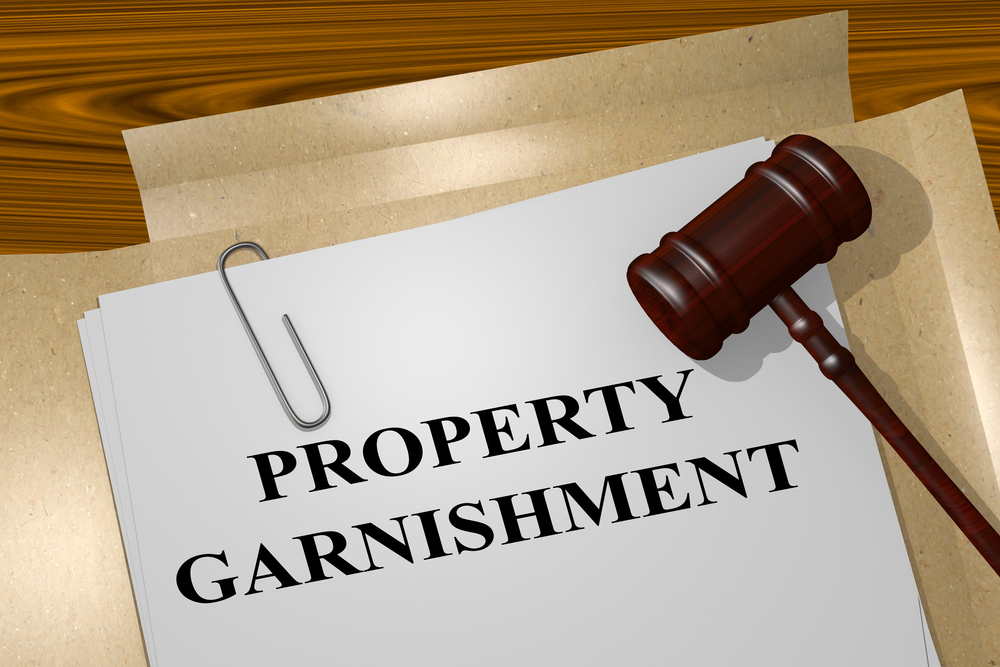
07 Apr Use a Writ of Garnishment on Personal Property If Your Judgment Debtor Is Not Employed
Last week we discussed the use of a writ of continuing garnishment as a first step in trying to enforce your judgment and collect your money from the judgment debtor’s employer. But what if your judgment debtor does not work? If you know that the judgment debtor is a landlord, has bank accounts or is owed money from someone, you will want to obtain a “Writ of Garnishment (on Personal Property Other than Earnings of a Natural Person)”. A writ of garnishment on personal property allows you to, for example, garnish rent payments that are owed to the judgment debtor, but are still in possession of his/her tenant, or funds held by a bank in the judgment debtor’s bank account.
Writ of Garnishment on Personal Property
Apart from a writ of continuing garnishment on a judgment debtor’s wages, the writ of garnishment on personal property is one of the most common ways to collect from the judgment debtor’s assets. It is the only procedure through which all types of personal property of your judgment debtor (other than earnings) in the possession or control of a garnishee is required to be held by the garnishee for payment of a judgment debt. This includes credits, debts, choses in action, or money owed to the judgment debtor, whether they are due at the time of the service of the writ or are to become due thereafter.

The Process for Obtaining a Writ of Garnishment on Personal Property
A writ of execution may issue after entry of a judgment. Your attorney can begin the writ process by filing the proper paperwork and requesting from the clerk a writ with notice, who must issue the writ upon request. Similar to the writ of continuing garnishment for wages, issuance of a writ of execution is not required before the issuance of a writ of garnishment on personal property with notice.
Following the service of the writ of garnishment on the garnishee, your attorney must serve a copy of the writ of garnishment, together with a notice of exemption and pending levy, upon the judgment debtor whose property is subject to garnishment by the writ.
The notice of exemption and pending levy must inform the judgment debtor that the judgment creditor intends to seek satisfaction of any judgment rendered in its favor against the judgment debtor out of the judgment debtor’s personal property in the possession or control of the garnishee. This paperwork must also inform the judgment debtor of his right to claim exempt property.
Specifically, the notice of exemption and pending levy in this type of garnishment proceeding must contain the following:
- The judgment creditor’s name and business address;
- The original amount of the judgment;
- The amount, if any, paid on the principal of the judgment as of the date of the notice;
- The principal balance due on the judgment;
- The interest, if any, due on the judgment;
- The itemized taxable costs, if any, including the estimated costs of serving the notice;
- The total amount due and owing on the judgment;
- The date of entry of the judgment;
- The name of the court in which the judgment was entered;
- A statement of the judgment debtor’s right to claim any property levied upon as exempt;
- A statement that, notwithstanding the debtor’s right to claim any property levied upon as exempt for the property specified in paragraph (j) of this subsection (2), no exemption other than the exemptions set forth in section 13-54-104(3) may be claimed for a writ which is the result of a judgment taken for arrearages for child support or for child support debt;
- The method of claiming an exemption and the time therefor; and
- The right to a hearing on any such claim of exemption and the time within which such hearing must be held.
Once properly completed, the service of the writ of garnishment on personal property gives the court jurisdiction over the specific type of property garnished and over the garnishee. The court’s jurisdiction will continue until after the court determines the rights of the parties to the garnished funds and orders their disposition.
What If the Judgment Debtor Claims an Exemption?
Your judgment debtor has the right to claim an exemption in any of his or her personal property that you are trying to garnish. In the event that the garnishee bank or the tenant of the judgment debtor do hold personal property of the judgment debtor (other than earnings) which the judgment debtor claims to be exempt, the judgment debtor, within 14 days after being served with the notice of exemption and pending levy, can make and file with the clerk a written claim of exemption setting forth with reasonable detail a description of the property he or she claims to be exempt, together with the grounds for the exemption. The judgment debtor must also, by certified mail, return receipt requested, deliver immediately a copy of their claims to the judgment creditor or his or her attorney of record.
Once the judgment debtor files the written objection or claim of exemption, all further proceedings with relation to the sale or other disposition of his or her property will be stayed until the court sets and holds a hearing to make a ruling on the judgment debtor’s objection or claim of exemption.
However, if the judgment debtor fails to make a written objection or claim of exemption within this time frame, the judgment debtor could also, any time within 182 days from service of the notice of exemption and pending levy, move the court to hear an objection or a claim of exemption as to any property levied in garnishment. The judgment debtor must establish a good reason for the request, and show that garnishment amount was miscalculated or that exempt property was taken. The court will grant this request only if the judgment debtor establishes mistake, accident, surprise, irregularity in proceedings, newly discovered evidence or events not in the control of the judgment debtor.
Types of Exemptions That Can Be Claimed by the Judgment Debtor
The types of exemptions that a judgment debtor could make in response to a writ of garnishment on personal Property include (but are not limited to):
- Workers’ compensation benefits
- Unemployment compensation benefits
- Group life insurance proceeds
- Health insurance benefits
- Fraternal society benefits
- Family allowances
- Public employees’ retirement benefits
- Social security benefits
- Railroad employee retirement benefits
- Public assistance benefits
- Police officers’ and firefighters’ pension fund payments
- Utility and security deposits
If you have questions about how to obtain a writ of garnishment on personal property, contact Edwards Law today to discuss the process. The first consultation is complimentary.


No Comments